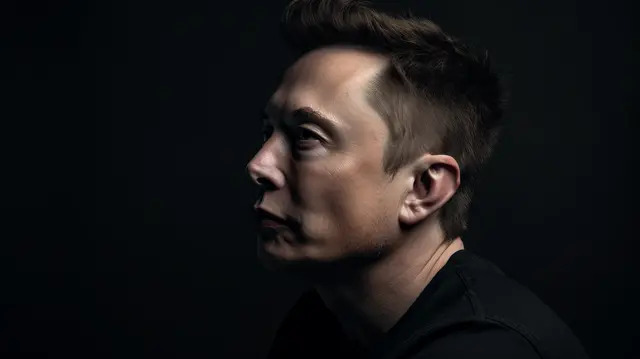Elon Musk, the outspoken tech billionaire and owner of X (formerly Twitter), has once again ignited a public firestorm with a bold statement. In a recent post on social media, Musk declared, “Pride flags should be banned from classrooms, forever!” The comment immediately sparked widespread discussion, dividing opinions on the role of identity symbols in educational settings.

Musk’s controversial stance appears rooted in his belief that schools should remain focused solely on education, free from political or social influences. According to Musk, such symbols—despite their significance to many—could disrupt the neutrality of learning environments.
Debate Over Pride Flags in Schools
Musk’s remarks have resonated with some, who argue that classrooms should remain neutral spaces free of symbols that might alienate certain students or parents. Supporters of Musk’s stance claim that eliminating such identifiers fosters an environment focused on academics rather than social or cultural issues.
On the other hand, LGBTQ+ activists and allies have strongly criticized Musk’s position, arguing that Pride flags are symbols of inclusivity and acceptance. Many contend that these flags make LGBTQ+ students feel seen and supported, contributing to their sense of safety and belonging. As one activist put it on social media, “Removing Pride flags sends a dangerous message to LGBTQ+ students: that they don’t belong.”
Musk’s Social Impact Beyond Technology
This is not the first time Elon Musk has waded into social or cultural controversies. His platform is often a stage for polarizing discussions, ranging from free speech to political correctness. Critics argue that Musk’s focus on divisive social issues detracts from his leadership in business and innovation, while supporters praise his willingness to challenge societal norms.
In an unrelated but similarly debated moment, Musk faced backlash for seemingly ignoring Algerian boxer Imane Khelif’s standout performance at the 2024 Olympics. Some fans interpreted his silence as indifference, further fueling criticisms about his selective engagement in social matters.
A Larger Conversation
Musk’s remarks have amplified an ongoing debate about the balance between inclusion and neutrality in public spaces, particularly schools. Should educational institutions prioritize a “neutral” environment devoid of political or identity symbols, or should they actively embrace and represent diverse groups?
The conversation Musk sparked is far from over. As his supporters and detractors continue to clash, one thing remains clear: Musk’s influence extends far beyond the realms of technology and business, touching on the cultural and social issues that shape modern society
News
Here’s What Elon Musk And His Family Typically Eat In A Day
A Glimpse into the Musk Family Dining Habits Elon Musk, the visionary behind Tesla and SpaceX, is known for his relentless work ethic and groundbreaking innovations. But what does the world’s richest man eat to fuel his extraordinary endeavors? And…
Billie Eilish Leaves US Because The Red Wave Is Too Strong, “I Can’t Live Here Anymore”
Billie Eilish, the globally renowned pop icon and Grammy-winning artist, has always been more than just her music. Her voice resonates not only through her hauntingly beautiful songs but also in her bold political statements. Recently, the shocking revelation that she has left the United…
Jennifer Lopez joined by hunky bodyguard in LA as she gets candid about ‘struggles’ after Ben Affleck split
Jennifer Lopez showcased her abs while out on a shopping trip after getting candid about being a mom who puts her ‘best foot forward’ still doesn’t stop her from being a ‘human being who struggles.’ The 55-year-old A-lister – who, along…
“I Definitely Hated It”: Aaron Rodgers Says He Regrets Hooking Up With All The Famous Women He Dated
Aaron Rodgers has made a statement on his past relationships that suggests he’s probably regretful. The New York Jets quarterback has dated some famous women since making the step up to the NFL but apparently did not enjoy the scrutiny that came with the territory….
Kansas City Chiefs President Forced To Address Rumors That Taylor Swift & Travis Kelce’s Relationship Is Just A “Marketing Strategy” For The Team
There’s a conspiracy theory for just about everything, including bizarre ones relating to the highly publicized relationship between Grammy Award-winning singer Taylor Swift and Kansas City Chiefs tight end Travis Kelce. The three-time Super Bowl champion has been in a relationship with Taylor…
Jennifer Garner’s Farm-Style Los Angeles Home: A Blend of Warmth and Functionality
Of her new home, Jennifer Garner notes, “I wanted it to feel old and cool and historic, but I also wanted to make it work for a big family with a lot of things going on.” The actor, who reprised…
End of content
No more pages to load











